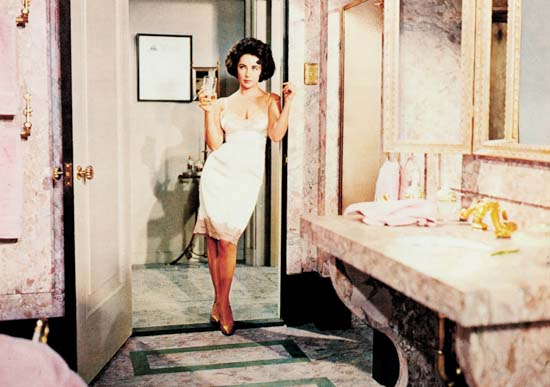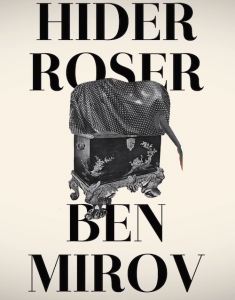Dalkey Archive is having a Holiday Sale! Get 10 books for $65 or 20 books for $120. Awesome deal. W00t.
25 Points: Waiting Up for the End of the World
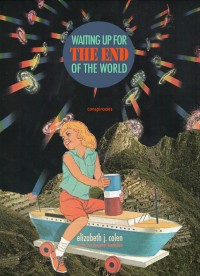 Waiting Up for the End of the World
Waiting Up for the End of the World
by Elizabeth J. Colen
Illustrated by Guy Benjamin Brookshire
Jaded Ibis Press, 2012
142 pages / $32.00 (color), $16.99 (BW) buy from Jaded Ibis Press
1. Conspiracy theories are enjoyable, people who embrace conspiracy theories can be depressing but when you’re not listening to one and simply letting your thoughts amble along wondering about JFK or the Lunar Landing or 9/11 you can entertain yourself for hours without getting far away from yourself—at least not too far to recognize who the hell you are when you’ve finished. It’s exactly the same principle that draws an H.P. Lovecraft to writing about fictive beasts and Tolkien to create an entirely different world to tolerate living in this one: embellishment, lies, theorizing, half-truths, all of these things provide immediate freshness to a very stagnant daily existence, and we as people cling to these in some form or another with some consistency at for at least part of our lives.
2. Sometimes conspiracy theorists creep me out; sometimes they don’t. This time, they don’t.
3. Books of poetry written on a theme, much like concept albums, are more direly hit-or-miss than mere collections of one’s best work. To let oneself think for a long time about one story and let it someday become a novel is—compared to this—a relatively easy feat, but to somehow tie together large amounts of poetry to coalesce into a book by the finish is nothing less than brilliant.
4. Sometimes themed collections of poetry fail; sometimes they succeed. This one succeeds.
5. Elizabeth J. Colen’s new collection of poetry Waiting up for the end of the World operates from a center of conspiracy—and features the descriptor “Conspiracies,” rather than poems, mind you—and though there’s ceaseless range to the content of each poem and these don’t all merely reflect one central theme per se, there is an anchor throughout of conspiracy and noted theories that’s quite comforting while reading.
6. Is that the mark of a good book of poetry? Comfort? I’m not quite sure but I think of visual artists creating fresh visions of antiquated imagery while tied to comfortable symbols or colors and I’m tempted to argue it’s true. It probably isn’t true, but this book of poetry is oddly comforting for something labeled “conspiracies.”
7. Most of the poems feature subtitles like “Lunar Landing,” “Princess Diana,” “New World Order,” and other household conspiracies that provide the aforementioned comfort, and make Colen’s description of scenes from a character’s youth or a father figure that much more effective and compelling.
8. The idea of the Lunar Landing being faked still terrifies me. These poems sort of mollify that sense of terror through looking more at the guts or emotions of the situation as opposed to the broad spectrum of technical information available (especially with the internet) but still, the idea of the Lunar Landing being faked still terrifies me.
9. Reading this collection during “election day” hoopla is ideal, but reading it in one month you’ll have another set of lunatics screaming at you and a year from now the same goes so I wouldn’t worry about it, I’d probably just buy the book.
10. Elections make Americans politically paranoid for roughly four months on either side of election day and then for a very long time we work and do a bunch of other more important shit that has nothing to do with politics. READ MORE >
November 21st, 2012 / 1:09 pm
Fans of artistic exploitation/transgressive cinema should check out the site Moondog Madness, where among other things you’ll find posts on Nick Zedd (including some news about his new film, Love Spasm, and an old trailer for War Is Menstrual Envy), and a detailed obit for Kōji Wakamatsu.
An Interview With John Tottenham
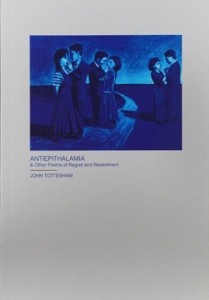 I met John Tottenham at a party hosted in an arcade in March 2012. He approached my friend and asked for a beer from the case she was carrying under her arm. “Let me have one of those,” he said in his British accent. She looked over to me, rolled her eyes and begrudgingly handed him one. “Yes, thanks,” he muttered, pivoting quickly to wander away.
I met John Tottenham at a party hosted in an arcade in March 2012. He approached my friend and asked for a beer from the case she was carrying under her arm. “Let me have one of those,” he said in his British accent. She looked over to me, rolled her eyes and begrudgingly handed him one. “Yes, thanks,” he muttered, pivoting quickly to wander away.
“What an asshole,” my friend mumbled.
I later saw him standing in a dark corner, alone, his eyes half-drawn, leaning on a pinball machine. He looked absolutely miserable. I laughed to myself. His display soothed my own misery. I had been looking for a way home since I arrived.
Six months later, John’s second collection of poetry – Antiepithalamia: And Other Poems of Regret & Resentment – was released on my press, Penny-Ante Editions.
I spoke with John via email.
***
Rebekah Weikel: Your work seems to be embraced by people who don’t normally read poetry.
John Tottenham: Which automatically dooms it to obscurity. All poetry, of course, is automatically doomed to obscurity, but to produce work that is accessible is to make it inaccessible to critics. It leaves them with nothing to do. And the critic has pulled off the outrageous feat of raising himself to the level of the artist and somehow making himself indispensable. But if there’s a direct line between poet and reader, then the critic becomes irrelevant, it could drive them out of business. Clarity is also anathema to people who are steeped in critical theory. The waters must be muddied to make them appear deeper, to give the serious readers and theoreticians something to fish for. Critical theory is a lot of fun but that’s all it is, fun: precisely what it’s supposed to not be. It’s a game for the overeducated. Nobody’s going to go there for wisdom, guidance, solace.
RW: You often write in the first person, but there’s also a contradictory quality.
JT: That’s due to the thorny issue of the unreliable narrator in poetry. It’s something one can get away with in prose – which, for example, Nabokov and Iris Murdoch do very well. But it’s difficult with poetry. People automatically assume that if you’re writing in the first person, you’re being confessional, especially if you’re addressing matters of the heart. I never sit down with the intention of writing a poem about anything or anybody in particular. The way I work is more like surgery or sculpture – a long process of accumulating notes, then chipping away, taking apart, piecing back together.
25 Points: Old Gus Eats
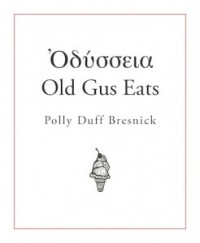 Old Gus Eats
Old Gus Eats
by Polly Duff Bresnick
Publishing Genius Press, 2012
28 pages / $4 buy from PGP
[The Translator’s Note accompanying Old Gus Eats begins: “To visually mistranslate The Odyssey while not knowing the language, I looked for familiar shapes in the Greek symbols that could form English words. This has been termed eye-rhyming, bad lip reading, and Rorschach writing.” Similarly, I wrote a 25 point review of Old Gus Eats, translated it into Greek using Google Translate, and attempted to visually mistranslate the Greek back into English.]
1. Paprika Pad Thai mojo draws the attention of asphyxiating ukulele slatherers, forming a tautology.
2. Yogurt induces food observations.
3. Ventrical self-serving pie charts can and will increase avoirdupois noontime chestnut old betsy emissions. Otto enters the ether.
4. An echo purges me nightly, biting my journal of Hellenistic studies, kumquats, eureka, mazeltov, orange pod.
5. O.J. Simpson as maker of P.T. Barnum bone structures: not only cornucopia but 88 tote bags of ayahuasca doctors. Madeleine Albright goes deep.
6. Negative herpes icon resembling Tristan Tzara’s dressmaker dummy applies milk mask to mule, nods vigorously, becomes spurter, engages in tantric AYO ALMIGHTY KAPOW verses, pierces epilogue.
7. Aztecs not mentioned.
8. Aflac peen dongler appears as vat paddler. Oval apertures and vellum vulvas elongated to vast dimensions of fatwa flavors.
9. Otto triangle ensnares kava plant with Diplo audio, followed by frequent kevlar didacticism. Ottawa nixed from frontal bouche/gouge, and trumpeted into era of revisionist tapioca pap smears.
10. Mystic River references unencumbering, pie frequent, epoxy pleasant. READ MORE >
November 20th, 2012 / 9:09 am
><><>> Calzones, collaborations, and fogbound techniques of waiting gracefully for nothing at the new issue of red lightbulbs
><><>> Astronaut brothers (or not), paradoxical undressing, and interviews about $$$ at the new issue of Gigantic
All Love is Lunacy: A Review/Interview with John Toomey
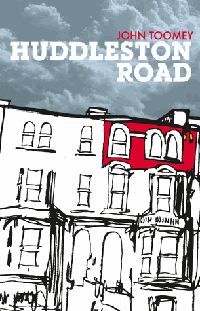 Huddleston Road
Huddleston Road
by John Toomey
Dalkey Archive Press, October 2012
160 pages / $15 Buy from Dalkey Archive or Amazon
John Toomey’s first novel Sleepwalker was an expertly cynical debut; something of a sprawling segue into Dublin as it’s then to be known to the reader and its excesses are as hilarious and compelling as they are cutting and insightful. That book is essentially what I think of as a hedonistic pipe dream put down on paper with nothing held back, with all the literary savvy of any of the contemporary masters describing chaos in the city, while retaining an originality that’s marked Toomey as an important presence in contemporary Irish literature.
His second book, Huddleston Road, is first and foremost a departure from that cynicism and mania inherent to the first. I’d argue that fans of the first book will immediately know the author’s work when they begin reading his second but the shift away stylistically is undeniable; and quite impressive. Consider, for a moment, the first books of Jay McInerney, or Bret Easton Ellis, each American authors who began with dark comedic forays into metropolitan chaos. One could argue that McInerney has grown away from this over the years but he’s always retained some of that sensibility, and the same certainly goes for Ellis, ten-fold. Although I’m a tad hesitant to draw comparisons to the first books of either of those writers (of considerably different movements than Toomey) the general point I’m hoping to make is that the writer challenged himself in starting out with such a distinctly-crafted epic as Sleepwalker, and—all the 2nd novel mythos aside—Toomey has managed to show here a different set of literary chops, while retaining the maniacal attention to detail so prevalent in the first book.
It follows a young Irishman named Vic. Vic leaves Dublin for London early on in the novel and through no real preference of his own winds up teaching history and such to teenagers. Again, through each moment, each paragraph, each sentence, the importance of this book seems to be that wild attention to detail Toomey seems to have great control over. A young man standing at a party is never simply that, but an opportunity to explore the ramifications of standing at said party and the physical details of those present and the questions running through young Vic’s mind. At times it reads as a sort of summary of this character’s thoughts and yet the vivid moments of dialogue and scene give striking reality to each moment when you find yourself so ingrained in this character’s reactions to moments that you forget the moments themselves.
Because this will also be an interview, and because I’m hardly interested in giving a moment-by-moment account of the novel’s content, I won’t delve that much deeper into the goings on in Huddleston Road except to address perhaps the most important part: Lali. Lali is a girl Vic finds himself desperately attracted to with every moment that passes. She doesn’t seem interested and even acts like a bit of an asshole at first and yet this draws Vic slightly more to her so that when he’s finally given a chance to sit and speak with her his mind is torn asunder with thoughts and worries and chaos and yet he cannot help himself. This is, I’d argue, a love story. There are moments that make it considerably different than most love stories you’ve read and will read, but all the same there are tropes at play here that make this book a fresh spin on the old magic of two people falling in love in spite of terribly difficult circumstances, and the ramifications in both of their lives as a result of this.
November 19th, 2012 / 12:00 pm
“I was thinking – to keep your left hand going – after I die – why not then – just pretend I’m still around…” — Excerpts from Dear Dawn: Wuornos in Her Own Words
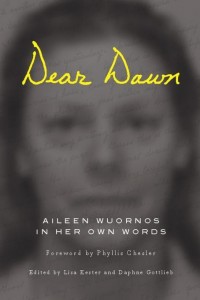 On Thursday, we talked about Dear Dawn: Wuornos in Her Own Words, a collection of letters that Aileen Wuornos wrote from prison to her childhood friend Dawn Botskins. As a follow up to that post, which includes a conversation between editors Lisa Kester and Daphne Gottlieb, we’d like to show you some of the letters in the book. Our selection spans from the early 90s to the early 00s. Enjoy.
On Thursday, we talked about Dear Dawn: Wuornos in Her Own Words, a collection of letters that Aileen Wuornos wrote from prison to her childhood friend Dawn Botskins. As a follow up to that post, which includes a conversation between editors Lisa Kester and Daphne Gottlieb, we’d like to show you some of the letters in the book. Our selection spans from the early 90s to the early 00s. Enjoy.
Dear Dawn,
“Can you remember time!” Do you remember the fight me an greasy haired Penny Dole and I had at the front steps of troy Union Grade School . . . Do you remember when Lori, + Ducky got in that car accident . . . Do you remember a guy with real long jet black hair. Named “Black sheep” at the high school.? Well one day. Him and I went under neath a stair well near the new section they built that had swinging doors that head outside. Once you hit the bottom of the steps. Well he had a 4 finger lid of “Acapolco Gold” . . . we went under there to roll a big one and smoke it there. We heard footsteps coming down. But we figured that was just another kid on his way out to somewheres. So we finished rolling it. And started to lite it. And Low and Behold. It was the Principle. He looked at us both and said “Report to my office now” . . . . . Black sheep. Gave me the lid. And he started up the stairs. I said to the Principle. Bullshit! I aint reportin now where. Matter of fact. I quit school. Right now. He said. Then you get off of these school grounds right now wuornos. And if I ever see you on them again Ill call the police. You understand. ha ha ha! I walked out the double doors with the pot. And that was the day I quit school. What was really strange was that the principle knew I wasn’t living at home. But in the woods. I guess he admired me, for having the guts to still go to school, as a runaway, and living in the woods near your house. A trip huh!
Well last page. Gotta close er up. Take Care Dawn . . . I’m still surviven. A little crazy but still comin through. 4-now Love Lee
November 18th, 2012 / 2:46 pm
The Poetry Brothel Will Actually Take Place This Sunday
Due to Betty Freidan’s pet rooster, or, as Mayor Bloomberg calls it, “Hurricane Sandy,” a lot of things were discombobulated, including The Poetry Brothel.
But now The Poetry Brothel has been rescheduled for this Sunday , 17 Nov. 2012. It will be from 8:00-1:00 at the Backroom on 102 Norfolk Street.
There will still be magic, music, burlesque, tarot cards (which I still don’t believe in), and tons of public and private poetry readings.
Dorothea Lasky and Ariana Reines will be there. So will the Princess of Brattydom, Carina Finn, and the Princess of Spanish Harlem, Jennifer Tamayo. What will happen when these two royal figures collide? Will it turn into a girly, more fashionable version of the exciting Israel-Hamas war?
Also, while I’m on the topic of prostitutes, I want to cite one of the most intriguing prostitutes ever (besides Elizabeth Taylor in Butterfield 8): Vivian Ward, played by Julia Roberts in Pretty Woman.
Vivian’s long curly red hair is really fairy tale. If it would’ve ran for president of the United States of America I maybe would’ve supported it.
If you aren’t entertaining the possibility of viewing Pretty Woman right this second, then you are like the shop girls in the movie who are rude to Vivian/Julia, which means you are a brickhead.
So… please consider coming to The Poetry Brothel and contributing to a theatrical and glamorous poetry event.
Here’s another picture of The Poetry Brothel’s madam, Stephanie Berger:
HIDER ROSER
HIDER ROSER
by Ben Mirov
Octopus Books, 2012
95 pages / $12.00 buy from SPD
A shamanic healer in San Francisco, who charges way more money than $12 USD, says we are always every age we have ever been. She promises to heal us of the behaviors that once protected us, at 3 and 8 and 13, but now no longer serve us. She will heal us with repeated sessions in which she asks ‘who is talking?’ and ‘what age is that person?’
For $12 USD, Ben Mirov’s HIDER ROSER provides direct textual access to this sort of temporal and spatial inquiry. You can keep it in your bag. You can have it all the time. What’s more, the poet reveals his own story (or the story of a mirror character) (or many mirror characters) (who is talking who is talking?) reducing the feelings of aloneness we may experience on our own trips. He gives us his eyeball, still wet. He gives us his ID. I read this book during a week of bad panic attacks, or “death lite” as I like to call them. I felt understood by Mirov’s book. “If your wolf gets too heavy / don’t pop the flares,” he advises. “No one will rescue you. You are the rescue team.”
Simultaneous threads of fear and acceptance run through these poems. The speaker watches himself disintegrate. The Self and its idea of who and what it is are not solid. Yet in knowing that he lacks the power to stop the fracture, Mirov’s speaker possesses the wisdom to embrace the dissolution.
November 16th, 2012 / 1:21 pm

